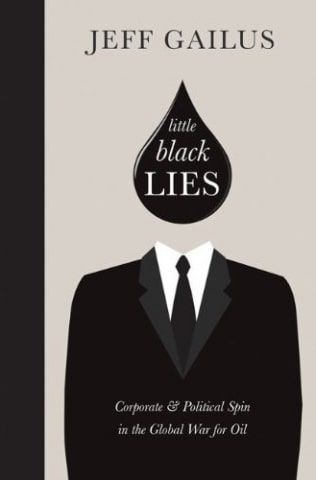Every communications expert knows that truth is rarely self-evident. Indeed, no matter how hare-brained or incredulous an idea is, if it serves the interests of a particular group of people who want it to be true, they’ll ignore any and all evidence to make it so.
Paul Krugman, an influential economist and columnist for the New York Times, recently wrote about this problematic phenomenon in the American military, where it is known as “incestuous amplification.” “Highly dubious ideas become certainties,” he wrote, “when a closed group of people repeat the the same things to each other – and when accepting the group’s preconceptions itself becomes a necessary ticket to being in the in-group.”
He refers, as an example, to the early days of what he calls the Iraq debacle, “where perfectly obvious propositions – the case for invading is very weak, the occupation may well be a nightmare – weren’t so much rejected as ruled out of discussion altogether; if you even considered those possibilities, you weren’t a serious person, no matter what your credentials.”
If this sounds eerily familiar, you might be thinking of the protracted campaign by Big Oil and the Alberta and Canadian governments to brand tar sands oil as a “clean, responsible and sustainable” source of energy. Earlier this week, I visited the Alberta government’s oil sands website to read about “Alberta’s clean energy story,” where we learn that Albertans “are doing our part to move the world towards a clean energy future.”
“It is crucial that the world gets its energy from regions that take environmental and humanitarian responsibilities seriously,” we are told, “and work to improve how fossil fuels are developed and used. With the world’s third largest proven oil reserves, Alberta is front and centre in these efforts.”
Like the bogus rationale for invading Iraq, these preposterous claims do not reflect the reality on the ground; they are simply a preferred (and perverted) version of the truth created by a “closed group of people” (Big Oil, government politicians and bureaucrats, and the army of communications people who make this fiction real) who have been “repeat[ing] the the same things to each other” for decades. It is, in short, “incestuous amplification” incessantly amplified, and it’s dangerous.
George Orwell wrote about this strategy in his acclaimed novel 1984. “Newsspeak” is the deliberately impoverished language used by the state to prevent any alternative thinking. It appropriates language and distorts the meanings of words. And so, as Orwell imagined it, Oceania’s Ministry of Truth adopts the slogans “WAR IS PEACE” and “IGNORANCE IS STRENGTH.” To these we can add, “DIRTY IS CLEAN” and “FINITE IS SUSTAINABLE.”
Although Orwell wrote about a totalitarian regime based loosely on the Soviet Union, he would not be surprised to find such nefarious methods being used in a capitalist democracy. Indeed, as Jim Hoggan pointed out in an earlier column, retired American linguist Dr. William Lutz identified government and industry as the worst offenders of using “language designed to evade responsibility, to make the unpleasant appear pleasant … language that pretends to communicate but really doesn’t. Language designed to mislead while pretending it doesn’t.”
Obviously, capitalist democracies in the West rarely use overt force or threats of violence to impose beliefs on its citizens, but this is in large part because the state has learned it doesn’t need to, not when sophisticated, well-funded propaganda campaigns work just as well. The Group polls people to find out what they want – in this case, Canadians want the tar sands to be developed in a clean and responsible manner – and then distorts language to make it appear that our expectations are being met. This tactic confuses the public and, more insidiously, creates an opportunity for those of us who prefer not to suffer the worst symptoms of cognitive dissonance – depression, anxiety, panic attacks – to choose, instead, to willingly embrace doublethink: to embrace the mutually contradictory belief that has been constructed by The Group.
And so “dirty” becomes “clean,” and so on and etc. If the government says it’s so, and my neighbours and friends believe it, and mainstream newspapers don’t challenge it, then it must be true. Or at the very least, it’s easier to believe that it’s true than to believe otherwise.
It’s an insult to our collective intelligence that the tar sands lobby can use the terms “clean” and “sustainable” with impugnity to characterize its dangerous energy experiment in northern Alberta. As violence and upheaval escalate in Iraq since American troops pulled out, and the country threatens to spin out of control and into civil war, it’s worth pondering the long-term consequences of believing what The Group tells us. For as I wrote at the end of Little Black Lies, a future built on deception will be a dark one indeed.
Jeff Gailus is the author of Little Black Lies and The Grizzly Manifesto. He writes about energy and the environment from his home in Missoula, MT.
Subscribe to our newsletter
Stay up to date with DeSmog news and alerts







